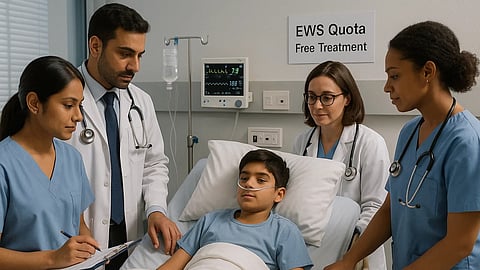Delhi, 31 August 2025 — A 12-year-old boy, Rishabh Singh Parihar, sustained serious injuries after falling from the first floor of his home in Delhi on 19 August 2025. The child required immediate hospitalization and was placed on a ventilator for critical care. His family, belonging to the Economically Weaker Section (EWS), did not have the financial resources to afford private treatment.
When no government hospital had an available ventilator bed, the family approached Shree Aggarsain International Hospital in Rohini. By that time, they had already incurred approximately ₹2 lakh in medical expenses, borrowed by the boy’s father, a daily wage laborer.
Following media reports highlighting the mounting medical bills and the family’s inability to continue treatment, the Delhi High Court took suo motu cognizance of the case. The court directed the private hospital to admit the child under the EWS category and provide continued treatment free of cost until the next hearing. The decision aligns with rules mandating free medical care for eligible patients from disadvantaged backgrounds.


